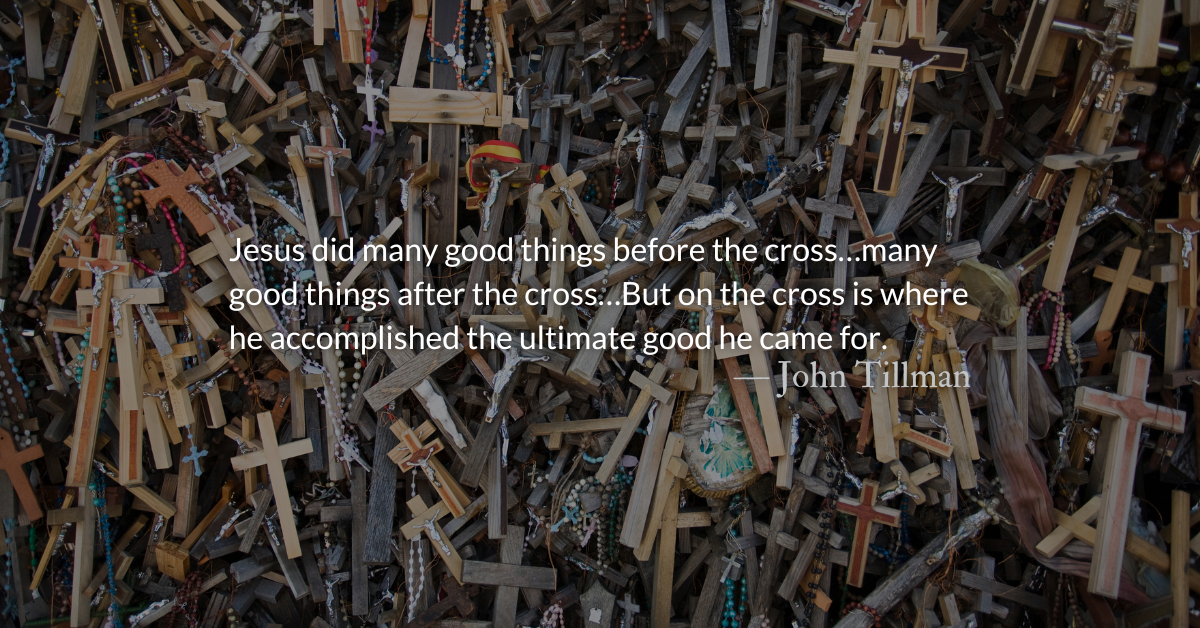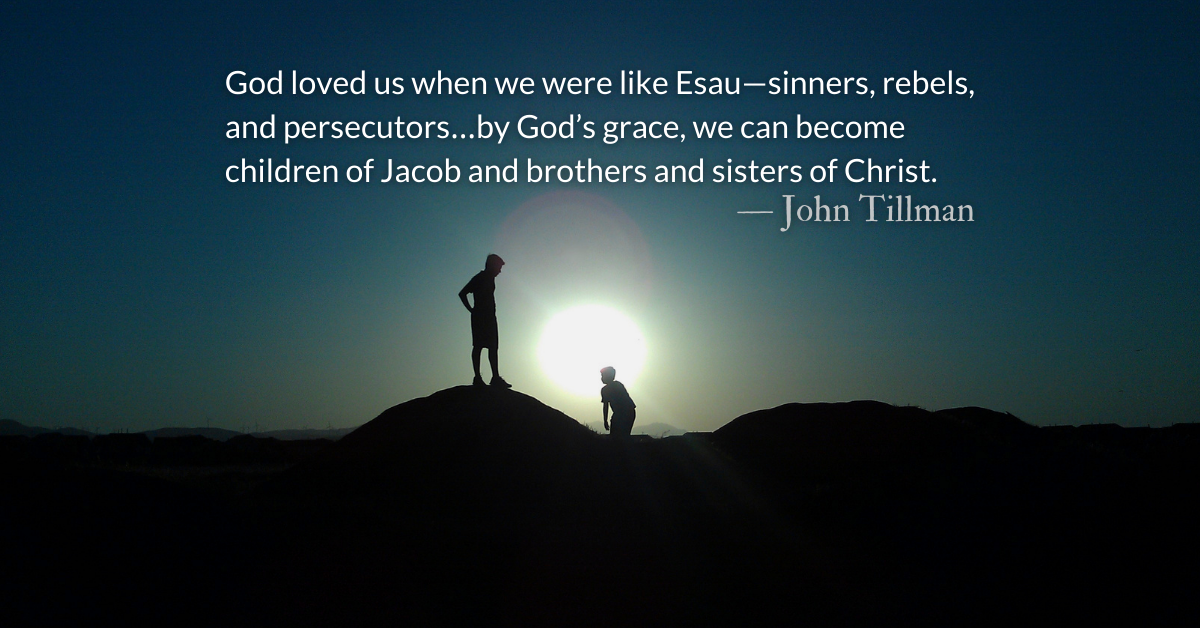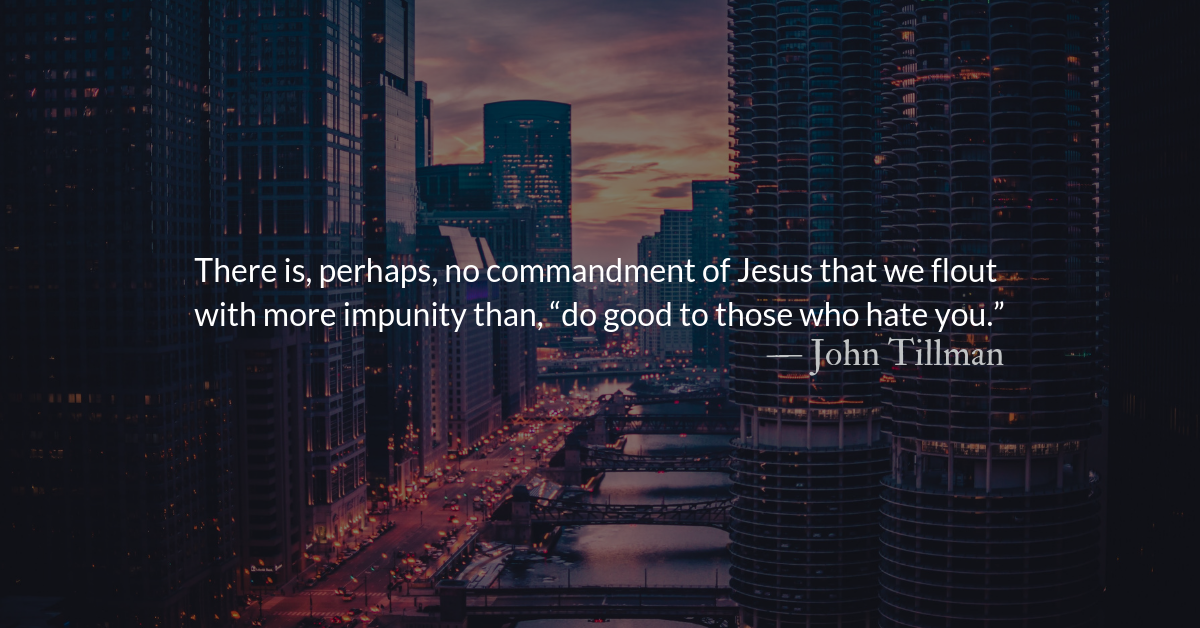Scripture Focus: Matthew 2.13
13 When they had gone, an angel of the Lord appeared to Joseph in a dream. “Get up,” he said, “take the child and his mother and escape to Egypt. Stay there until I tell you, for Herod is going to search for the child to kill him.”
Galatians 4.4-5
4 But when the set time had fully come, God sent his Son, born of a woman, born under the law, 5 to redeem those under the law, that we might receive adoption to sonship.
Romans 5.7
6 You see, at just the right time, when we were still powerless, Christ died for the ungodly.
Reflection: Why The Cross?
By John Tillman
If salvation merely needed the blood of the sinless one, then any death would do. Herod’s soldiers could have killed two-year-old Jesus. He could have leaped from the top of the Temple as he was tempted by Satan. His friends and neighbors could have thrown him off of a cliff. He could have been stoned. He could have been beaten with clubs or killed with the sword.
Why the cross?
Inside and outside Christianity, people express discomfort with the cross. “Isn’t it gross?” “Isn’t it violent?”
Ancient people agreed. Perhaps the first historical depiction of Jesus’ crucifixion is the Alexamenos graffito, dated to about 200 AD. It scoffs, “Alexamenos worships his god,” under the image of a donkey-headed crucified man.
I saw a set of memes recently from a former Christian who is now a skeptic/atheist. The AI-generated images showed life if Rome used guillotines rather than crosses. In a beautiful cathedral, a guillotine hung in shafts of stained glass-colored light during a wedding. Monks carried a flower-bedecked guillotine through festival streets. Elaborate guillotines decorated headstones and crypts in a peaceful graveyard.
Why is the cross worthy of architectural enshrinement in our places of worship? Why is it worthy of remembrance in festivals, jewelry, and decor? Why is it worthy of being a symbol of reverent hope on headstones? Why obsess over a gruesome instrument of torture?
In his sovereignty, out of all places, all times, and all means, Jesus chose the cross to bring the greatest good out of the greatest evil. (Romans 5.6; Galatians 4.4-5)
Jesus did many good things before the cross. Healing. Teaching. Serving. Jesus did many good things after the cross. The harrowing of Hell. The resurrection. The ascension. The coming of the Holy Spirit. But on the cross is where he accomplished the ultimate good he came for.
Every good thing before the cross pointed to it. Every good thing after the cross is evidence of the power broken on it.
On the cross, God was in Christ, reconciling us to himself (2 Corinthians 5.18-19), accomplishing all that scripture promised. Sin dead. Death defeated. Satan vanquished.
The cross is worthy because of the work Jesus did on it: “It is finished.” (John 19.30) So, we are not ashamed of the gospel revealed on the cross. Let us continue to remind ourselves of it, center our teaching on it, and reverence it in every appropriate way.
Divine Hours Prayer: The Refrain for the Morning Lessons
My God, my God, why have you forsaken me? And are so far from my cry and from the words of my distress? — Psalm 22.1
– From The Divine Hours: Prayers for Summertime by Phyllis Tickle.
Today’s Readings
Song of Songs 5 (Listen 2:43)
Matthew 2 (Listen 3:18)
This Weekend’s Readings
Song of Songs 6 (Listen 1:48) Matthew 3 (Listen 2:17)
Song of Songs 7 (Listen 1:55) Matthew 4 (Listen 3:09)
Read more about The Moon and the Cross
He is about to die on their behalf. The one who hung the moon will hang on a cross.
Read more about The Prayer From the Cross
Jesus knew that most of his audience would recognize the quote and understand that he was referencing the entire psalm.










